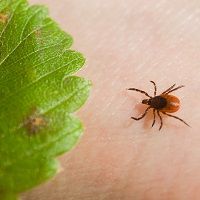Study Outlines Parasitic Infection Route
Employing a "Trojan horse" line of attack, University of Edinburgh researchers claimed parasites use thetactic to diminish their hosts' immune response during infection.

Employing a “Trojan horse” line of attack, University of Edinburgh researchers claimed parasites use thetactic to diminish their hosts’ immune response during infection.
Their study, published in Nature Communications, showed how parasites use genetically-dense packages to mimic the body’s everyday processes. These vesicles essentially suppress immune responses when attacking the body, a University of Edinburgh press release mentioned.
Using mice models, investigators infected them with Heligmosomoidespolygyrus, a gastrointestinal nematode, and confirmed they blocked key immune genes.
“Administration of the nematode exosomes to mice suppresses Type 2 innate responses and eosinophilia induced by the allergen Alternaria,” the writers noted.
While the research further clarified the role of parasites during infection, the investigators also believed their discovery could translate into treatments for not only parasitic worms, but allergies such as hay fever.
“These results reveal exosomes as another mechanism by which helminths manipulate their hosts and provide a mechanistic framework for RNA transfer between animal species,” the authors declared.
Since traces of the parasite’s genetic material were detected in humans’ blood, it was possible a test could be administered to pinpoint infections, the release also pointed out.
“We can see for the first time that parasites can use packages to sneak their material into the cells of other organisms. We now can develop ways to target this with implications for the billions of people and animals at risk of infectious diseases and allergy,” Amy Buck, the study’s contributor, said in the statement.